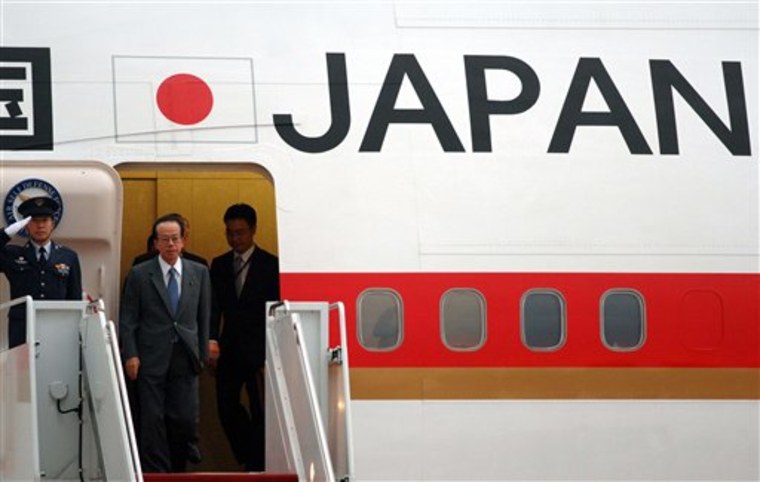President Bush on Friday said six-party talks to persuade North Korea to abandon its nuclear ambitions had delivered "measurable results" but there was more work to be done to reach the goal of a nuclear-free Korean peninsula.
Standing alongside Japan's new prime minister, Yasuo Fukuda, Bush also welcomed Japan's role in the talks, and said the United States would not forget the importance Tokyo places on the unresolved issue of Japanese kidnapped in North Korea in the 1970s and 1980s.
Japan has linked the abductions to a satisfactory conclusion to the nuclear talks with North Korea.
"I understand how important this issue is to the Japanese people, and we will not forget the Japanese abductees and their families," Bush said.
Japan is seeking a greater role in the six-party talks and has urged Washington not to move too quickly in removing the North Korea from its list of terror-supporting nations until Pyongyang accounts for the kidnapped Japanese.
It was Fukuda's first visit to Washington since he became prime minister in September.
Six-party supervision
"The six-party talks have delivered measurable results," Bush said. He said the plutonium-production facilities at Yongbyon, North Korea's main nuclear complex, "are now being disabled under six-party supervision."
Still, Bush said, much work remains to be done by North Korea, including the communist regime's promise to provide a full declaration of all its nuclear programs and proliferation activities by the end of this year.
For his part, Fukuda said he and Bush "agreed that Japan and the U.S. need to maintain close coordination with each other" on the North Korea issue.
"President Bush stated that he will never forget the abduction issue," Fukuda said.
"We agreed that Japan and the U.S. need to maintain close coordination with each other in order to achieve complete abandonment of all nuclear weapons and programs by North Korea through the six-party talks," Fukuda said through a translator.
Afghanistan efforts
The two leaders took no questions in their joint appearance in the grand foyer of the White House.
Bush also pressed Japan to resume naval refueling operations in the Indian Ocean that have been suspended, citing the importance of the operation to the effort in Afghanistan.
Japan's opposition party blocked an extension of the operation, saying it violated Japan's constitution.
"I communicated to President Bush that I will do my level best to achieve an early passage of a bill for the early resumption of refueling activities in the Indian Ocean by the Japanese," said the Japanese leader.
"President Bush expressed his appreciation for Japan's support for the international community's fight against terrorism and the hope that refueling operations will be resumed soon," Fukuda said.
Bush said that Japan had made "valued contributions" in supporting the young democracy in Afghanistan. He said that over six years, Japanese vessels had refueled ships from 11 coalition nations nearly 800 times.
Said Fukuda: "We should never allow Afghanistan to once again become a hotbed for terrorism, and we agreed that Japan and the United States should continue to work together with the international community in the fight against terrorism."
Bush said he and the Japanese leader also agreed that Iran must not become a nuclear-armed nation and condemned the crackdown by the government of Myanmar against democracy advocates. They also discussed climate change, energy, economic reform in Japan and efforts to restart world trade liberalization talks.
The United States and Japan are the world's first and second largest economies.
